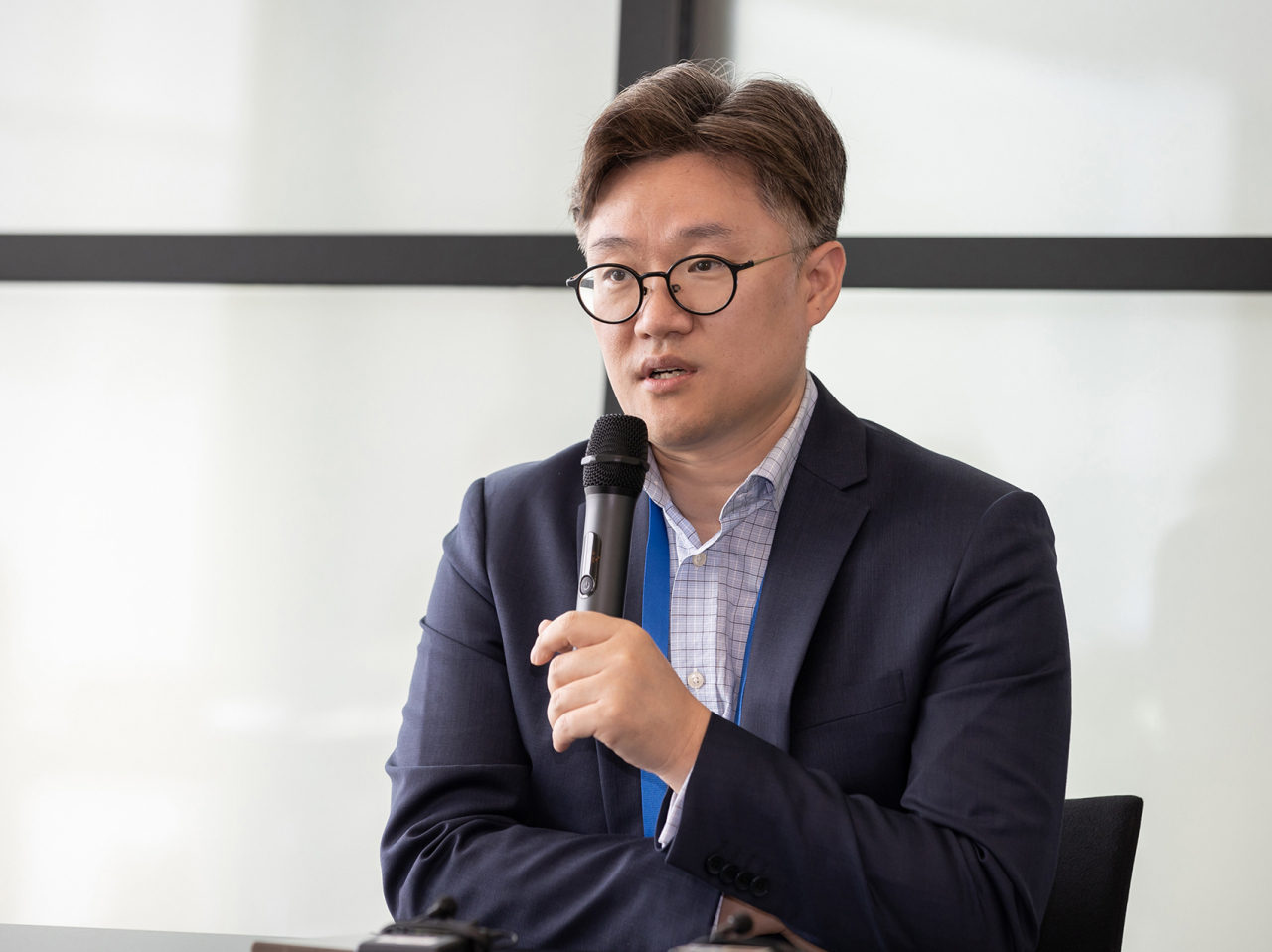Samsung will cement premium market leadership: TV chief
While the global TV market is expected to log negative growth, demand for larger and higher-end TVs is on the rise
By Jo He-rimPublished : Sept. 3, 2023 - 17:36

BERLIN -- While the global TV market struggles to move beyond the COVID-19 pandemic, Samsung Electronic said it will strengthen its leadership in making larger and more higher-end TVs, as the market for them shows a trend of continuous growth.
"While the TV market has been stagnating for the past several years now, the market for larger and higher-end TVs continues to grow and Samsung is leading the market, outpacing its rivals by far," Chung Kang-il, executive vice president at Samsung Electronics, said at a press conference held on Friday on the sidelines of the IFA trade show. The event kicked off in Berlin on Friday for a five-day run.
"Consumers want immersion, extra-large screens and connectivity from TVs. And what I realize is that human desire is endless for bigger and bigger screens."
According to Chung, the global TV market is expected to log $96.5 billion in 2023, down 5.8 percent on-year, with COVID-19 continuing to make demand sluggish.
Samsung said it has been witnessing sales continue to grow for TVs with screens larger than 70 inches from 10.2 percent in 2019 to 20.2 percent in 2022, while those with screens smaller than 50 inches have been on decline.
At this year's IFA, Samsung exhibited its latest premium, large-screen TVs, including the 98-inch Neo QLED 8K TV and MicroLED TVs ranging from the 76-inch to 140-inch models.
At the same time, Samsung said it will also bolster user experience, that the company is set to introduce a new product with a whole new experience concept in the near future.
Over how Chinese rivals such as TCL and Hisense have caught up to introduce a wide lineup of mini LED TVs matching that of Samsung's Neo QLED, Chung said Samsung's "years of knowhow" will create a competitive edge.
"Chinese companies have also been making mini LED TVs for the past couple of years, and it looks like the Chinese firms are strategically marketing their mini-LED products, which are now thought of as higher-end when compared to LCD displays," Chung said.
"Samsung has its own know-how, and even if the technology in making the display is the same, we can create clearer and better resolution. It also means that mini LED technology is worthy enough for companies to choose."
According to Samsung, TCL and Hisense took 10.2 percent and 9.5 percent of the market share, respectively, in global TV sales during the first half of this year, trailing behind Samsung and LG. Samsung took 31.2 percent of the market share while LG took 16.2 percent.
But by number of units sold, TCL and Hisense are No. 2 and No. 3 after Samsung.
As a means to avoid competing head-on with the two Chinese companies, Samsung has resumed sales of OLED TVs, the more advanced technology these rivals have yet tapped into.
At the same time, Samsung aims to secure the top position in the sprawling micro LED market in advance, viewing it as the display of the next generation that can overcome all the limitations of existing displays.
"For several years, Samsung has been developing micro LED TVs. We believe micro LED is what can overcome all the disadvantages and limitations existing displays face, and that it will be our driver of growth in the future," Chung said.
"But we will continue to take the strategy of presenting all types of displays, including QLED, Neo QLED and OLED, for consumers to choose based on their preferences."



















